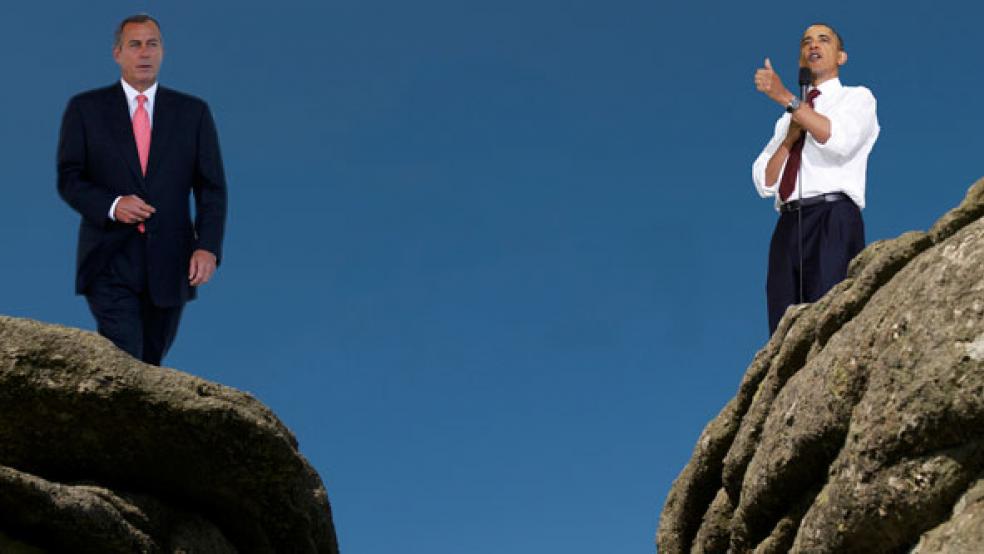Listening to the bluster coming from Republicans and Democrats alike, you'd think the two sides "could not be further apart on a year-end tax-and-spending deal" to avoid going over the fiscal cliff, say Jim Vandehei and Mike Allen at Politico. Publicly, Republicans insist they'll dig in to resist hiking tax rates to raise more revenue. Privately, however, they know full well "there is no chance taxes are not going up for people making north of $250,000." There's just no way to make a real dent in the deficit by closing loopholes, so rates for the wealthiest Americans will have to rise — "if not all the way to the Clinton-era 39.6 percent, then darn close." It's "simple math." But how do you get Republicans to swallow such a bitter pill? Democrats, despite all the "chest-pounding by liberals," are aware "they will ultimately cave and trim entitlements to get a deal done."

Cut through the fog, and here's what to expect: Taxes will go up just shy of $1.2 trillion — the middle ground of what President Barack Obama wants and what Republicans say they could stomach. Entitlement programs, mainly Medicare, will be cut by no less than $400 billion — and perhaps a lot more, to get Republicans to swallow those tax hikes. There will be at least $1.2 trillion in spending cuts and “war savings.” And any final deal will come not by a group effort but in a private deal between two men: Obama and House Speaker John Boehner (R-Ohio). The two men had what one insider described as a short, curt conversation Wednesday night — but the private lines of communications remain very much open.
If this really is the way the deal shapes up — and it probably "isn't too far off the mark" — Democrats who feared their side would "cave" should be happy, says Ed Kilgore at Washington Monthly. They would get a lot of what they wanted: "A non-negotiable top marginal tax rate increase; some defense cuts in the 'spending cut' mix; and relatively slender 'entitlement reform' centered in Medicare with savings occurring ten years out or more." There are a lot of "ifs," though, and Boehner will have to squeeze out some more last-minute concessions to get the conservative base to go along. So we're probably in for "a lot more Kabuki" before "anything real happens."
"Both sides are still cowards when it comes to cutting and reforming entitlements, a critical element of any move back toward pre-Bush fiscal sanity," says Andrew Sullivan at The Daily Beast. "At some point, I think Obama needs to own the entitlement cuts — just as the GOP will have to own the tax increases." Obama has just been re-elected after promising "he would tackle the hard problems." It's up to him to get his own party to make painful compromises. The clock is ticking, and he can't "lead from behind."
"If the American people had given Republicans the power to make major headway on the debt, the party would be obligated to try whatever that takes, the political consequences be damned," says Paul Mirengoff at Power Line. "But the electorate chose to give Republicans only a little power" in the November elections, so they have to be careful how they handle the fiscal cliff negotiations.
With a little bit of power comes a little bit of responsibility. This means bargaining hard to reduce spending and to do some entitlement reform. It does not mean taking positions that will strike voters as so hardline that Democrats will be able to portray Republicans as the villain of the piece, i.e., the reason why the country went over the fiscal cliff and experienced an economic downturn.
More from TheWeek.com:
Joe Biden Goes to Costco: The Best Jokes
Why President Obama's Annoying Campaign Emails Worked
The Heartwarming Photo of a New York Cop Helping a Homeless Man




